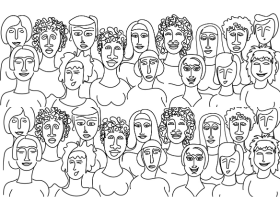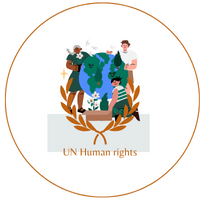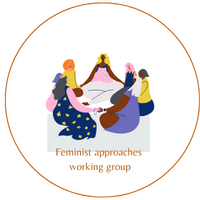We continue to live in a world in which war and conflict are perpetuated by human rights violations related to habitat. These violations have differentiated impacts among affected populations, in particular on women in all their diversities.
In the context of violence and conflict the leadership and resistance of women is often overlooked, as is their contribution to building peace and their central leadership role in caring for the entire community and territory.

This women’s month, HIC aims to raise awareness on the key role played by women in all of their diversities, in resisting violence and conflict, and advancing towards peace, through how they realise care for communities and defend territories.

During war and conflict human rights violations related to habitat have a profound and disproportionate impact on women's fulfillment of their human rights related to habitat

Women are central to resisting and denouncing situations of conflict and violence and to building peace

women's leadership in resisting conflict, caring for communities and building peace

During war and conflict human rights violations related to habitat have a profound and disproportionate impact on women's fulfillment of their human rights related to habitat

Women are central to resisting and denouncing situations of conflict and violence and to building peace

A feminist view of conflict and violence is urgently needed: recognizing differentiated impacts on women as well as women's leadership in resisting conflict, caring for communities and building peace
Why are we focusing on the role of women in the context of conflict and violence?
What are we calling for?
Visibilize the differentiated impacts of violence and war
on women’s housing and land rights, and their role in contributing to care systems.
Recognize the leadership of women
in the context of conflicts as contributing to peace, claiming and defending the right to housing, right to land and right to care.
Listen to the experiences of women in all of their diversities, in claiming and defending the right to housing and land and their key role in caring for the whole community.
“Post-conflict situations and reforms can be viewed as an opportunity for transformation of the societal structures and norms in place before the conflict in order to ensure greater enjoyment of women’s human rights. Yet, women’s exclusion from conflict prevention efforts, post-conflict transition and reconstruction processes have been matters of concern for the international community” (OHCHR).
Call for the recognition of the human right to care
What is the human right to care?
HIC understands the right to care, to be cared for and to self-care as the protection and guarantee of all the activities that ensure the reproduction and sustaining of life. These activities are usually carried out by women and are unpaid. They encompass care-giving for those that require specific care, but also day-to-day activities that are carried out inside or outside the home and that ensure the sustaining of life in adequate conditions and allow for physical and emotional well-being.
-
Care work consists of two overlapping activities: direct, personal and relational care activities, such as feeding a baby or nursing an ill partner; and indirect, day-to-day care activities, such as cooking and cleaning.
-
Unpaid care work is undertaken without monetary compensation, is considered as work and is thus a crucial dimension of the world of work.
-
Paid care work is performed for pay or profit by care workers.
Source: UN and ILO
How can I join the campaign?
Join HIC’s Event at the CSW68 NGO Forum
The HIC cross regional working group on feminist approaches, in collaboration with the HIC Women and Habitat Africa Working Group (WHAWG), Women and Habitat Latin America Network, Huairou Commission and United Cities and Local Governments (UCLG) will be holding a virtual parallel event at this year’s 68th session of the Commission on the Status of Women (CSW68)
The event is titled “Care, Territories and Violence: enhancing gender equality, women’s land and habitat rights to accelerate poverty eradication.” and will take place online on Wednesday 20th March at 8:30am NY time. (You can check your local time here ). The event will count with interpretation in english, spanish, french and arabic.
Registration is ongoing and will be open till the 14h of March 2024. Kindly register here: https://us06web.zoom.us/meeting/register/tZUkf-iurTopHtJMPeoYHZvWmW-IXQPRGjqS
More info at the dedicated page of the event: https://www.hic-net.org/event/side-event-csw68/
Send inputs and comments for the Human Rights Council resolution 54/6 on the centrality of care and support from a human rights perspective
In October 2023, the UN Human Rights Council adopted resolution 54/6 on the centrality of care and support from a human rights perspective and asked the United Nations Human Rights Office (UN-Human Rights) to organize an expert workshop and to prepare a report on human rights and “care and support” to help their discussion. The expert workshop will be held in October 2024 at the United Nations, Geneva, in Switzerland.
This call for inputs is an unique opportunity to lobby different spheres of government about:
- the reality faced by women, persons with disabilities, children and older persons who act as caregivers and receivers of care and support
- their right to self-care from a gender equality and human rights perspective, with the objective of evaluating experiences, good practices and main challenges regarding the effective recognition of the rights of caregivers and those receiving care and support.
The inputs will inform a resolution of the UN Human Rights Council on the centrality of care from a human rights perspective, which will serve as basis for advancing the work of the Human Rights Council on the issue
If you’d like to contribute to HIC’s joint repose to the call, please contact sophia@hic-net.org
Join the HIC Feminist Approaches Working Group
The HIC Cross-regional working group on feminist approaches to Habitat arose out of the need for continuous engagement, learning and further interregional collaborations and advocacy on Feminist Approaches to Habitat .
The group offers a space for HIC members to organize activities that strengthen joint learning and collective advocacy in relation to Habitat and Gender.
The cross-regional working group is open to all interested HIC Members, and convenes on a quarterly basis guided by its annual workplan that is co-developed by the Members. This work plan of activities comprises learning opportunities and advocacy processes that take into consideration and further shape HIC’s global advocacy strategy in relation to habitat and gender, exchange initiatives and strategize to place gender as a fundamental issue that cuts across all aspects of habitat-related rights at a local, regional, national and global level.
How can you join? Contact gs@hic-net.org
Climate Justice
HIC is committed to and involved in the struggle for Climate Justice, calling for it to be treated and enacted as a fundamental Human Right related to Habitat. This call is is rooted on the five pillars of HIC’s Habitat Voices Manifesto, linking equality, individual and collective human rights, and historical responsibilities for climate change as an urgent political and ethical issue
There are no upcoming events at this time
Gender equality
HIC reinforces its social strength and its capacity to influence progress and mainstream gender and human rights related to habitat. The intent is to fully integrate SDG 5 and CEDaW obligations and General recommendations with HIC’s commitment to gender equality across all HIC’s organisational objectives.
There are no upcoming events at this time
Food sovereignty
HIC advocates for food sovereignty by putting the people who produce, distribute and consume food at the centre of decisions about food systems and policies, rather than the demands of markets and corporations, mainly at the International Planning Committee on Food Sovereignty.
There are no upcoming events at this time
Displacement & Crisis
HIC-HLRN monitors and compiles data on housing and land rights violations in order to give visibility and propose solutions in cases. The resulting displacement crises not only creates worrying logistical and humanitarian consequences, but further threaten international security and risk the lives of displaced people, aid workers, human rights defenders and peacekeepers.
There are no upcoming events at this time

